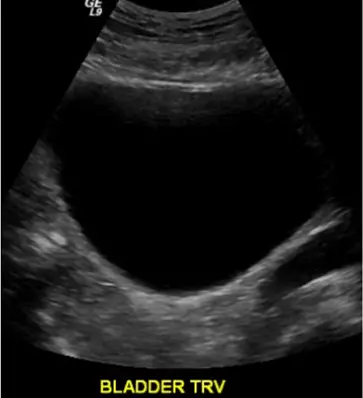Urinary Bladder Disorders That Can Go Undetected
What are urinary bladder disorders?
The urinary bladder is a small pear-shaped sac, found in the pelvis, where urine is stored. The bladder is composed of muscular layers which stretch to accommodate urine.From here the urine is ejected voluntarily through the contraction of these muscles. Anything that hinders the normal functioning of the bladder, be it a stone present inside it or weakening of the muscular walls and structural changes in the bladder which will either cause frequent, infrequent, and involuntary expulsion of the urine, is termed as a urinary bladder disorder(BLADDER DISORDERS, n.d.). Neurogenic dysfunction may cause the bladder to leak urine involuntarily and can affect people of all ages. The development of bladder disorders is common with aging, and females are more prone to developing it than males.More than 35 million Americans are said to have some kind of bladder disorder that influences them to live their life around their condition.
What are some common bladder disorders
They include(Bladder Diseases, n.d.):
- Urinary incontinence: Chronic, involuntary, and accidental release of urine that can occur because of various causes, such as pregnancy, stress, etc.
- Cystitis:Bladder inflammation caused by an infection.
- Overactive bladder: Accidental leakage of urine occurs in this condition.
- Interstitial cystitis: Chronic pain in the bladder characterized by a frequent urge to urinate.
- Obstruction in bladder Blockage that occurs at the base of the bladder which hinders the flow of urine from the bladder to the urethra.
- Diverticulum bladder Congenital or acquired outpouching or hernia in the bladder.
- Bladder cancer: Presence of malignant tumor in the bladder.
- Neurogenic bladder sLack of voluntary control over the bladder due to an underlying problem in the brain, spinal cord, or nerves.
Complications of chronic bladder disorders
Complications of chronic bladder disorder such as urinary incontinence cause the development of kidney stones, pyelonephritis, and cystitis. Other disorders such as neurogenic bladder may increase the liability of contracting urinary tract infections that have a high morbidity rate(Gregory T Carter, 2021).Reduction in bladder capacity, emotional disturbance because of having to urinate when sleeping, sexual intimacy issues, and other complications that may arise, including bladder cancer which occurs more commonly in men than in women(Bladder and Other Urothelial Cancers Screening (PDQ®)–Patient Version, 2021).
Symptoms of bladder disorders
Symptoms vary depending upon the disorder(BLADDER DISORDERS, n.d.). Therefore, for bladder cancer, the symptoms include:
- Blood in urine
- Changes in urination habits, such as getting urges to urinate frequently, or not getting the urge to urinate.
- Pain while urinating
Symptoms for obstructed bladder outlet include:
- Pain during urination
- Persistent feeling of a full bladder
- Weak flow of urine
- Urinary tract infection
- The urge to urinate frequently at night
- Accidental urinating in small amounts involuntarily
- Inconsistent urine flow that may stop and start
- Abdominal pain
- Having to strain to urinate
Symptoms for cystitis include:
- Chronic pelvic pain
- A sensation of pain or discomfort when the bladder fills and relief when it empties
- Pain during sexual intercourse
- Pain in the genital area
Symptoms for urinary stress incontinence include:
- Leaking of urine during laughing loudly, sneezing, lifting weight, stretching, coughing, or straining.
Symptoms of urinary urge incontinence include:
- Getting the sudden urge to urinate
- Need to frequently urinate at night
- Accidental release of considerable amounts of urine
What are the risk factors for bladder disorder?
They include:
- Enlarged prostate gland
- Age
- Immobility
- Urinary tract abnormality (such as diverticulum bladder)
- Urinary catheter
- Pregnancy
- Diabetes
- Urinary hindrance by blockage
- Narrow urethral opening
- Bowel incontinence
- Inadequate water intake
- Exposure to certain chemicals such as arsenic or chlorine in the water
- Smoking tobacco cigarettes
- Family history of bladder disorder, such as bladder cancer
Why is early detection of bladder disorder important?
Early detection of bladder disorder helps improve quality of life and helps you not to have to live your life around your condition. With timely administration of treatment, people can overcome most bladder disorders that may be taking a toll on their emotional and social aspects of life. Also, if detected early, bladder cancer can be controlled before it is spread to other nearby organs and improves the chances of the treatment being successful(team, 2019).
Who should get a urinary bladder ultrasound?
Ultrasound screening is an ideal option for people who are looking for a painless, radiation-free, and non-invasive method for identifying or evaluating any bladder issues. It is effective in finding stones, identifying blockages in tracts, and can measure the wall thickness of the bladder as well(Bladder Cancer Screening and Diagnosis, n.d.). By seeing how the bladder is draining urine, healthcare providers can identify the causes of frequent and infrequent urination. It can identify diverticulum in the bladder, stones, tumors, and the size of the prostate gland as well to rule out bladder dysfunction cause.
What are the benefits of annual bladder screening with ultrasound?
With annual screening with ultrasound, individuals with high risk for bladder disorders will be able to get appropriate treatment because of diagnosing the disorder in early stages. For follow-up and surveillance after a urinary tract surgery, ultrasound provides a great option for people who do not want to go through invasive or other scanning methods that will require them to spend some time at the hospital or make them dependent on someone until they recuperate from the procedure.
